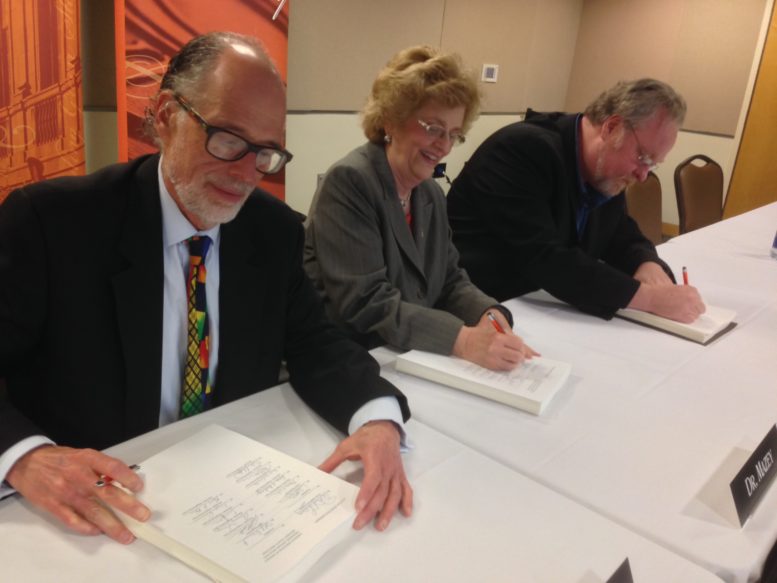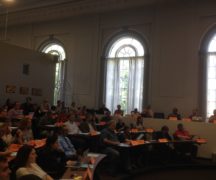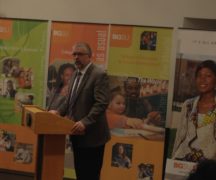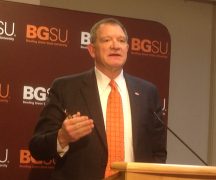By DAVID DUPONT
BG Independent News
The new contract between Bowling Green State University and its faculty union prompted a thumbs up from the chair of the board of trustees and a presidential hug.
The trustees approved a three-year contract with the BGSU Faculty Association Friday.
This is the second contract between the two sides. This one took months to reach as opposed to years in the first collective bargaining agreement.
After signing the contract Board Chair David Levey gave the pact two thumbs up as President Mary Ellen Mazey and Faculty Association President David Jackson hugged
Speaking to the board, Allen Rogel, who chairs the Faculty Senate, said that “the environment now compared with three years ago is much better.”
The faculty union approved the deal with a 95-percent affirmative vote. “I don’t know anywhere anyone gets 95 percent assent,” said Levey.
The contract takes effect on July 1.
The contract calls for 3-percent pay increases each year. The contract also includes provisions to give greater security for non-tenure track faculty as well as incentives for faculty who bring external grants to the university.
The trustees also took two actions related to provisions in the new contract.
They made domestic partners ineligible for coverage under university employees’ health plan. Because of the legality of gay marriage, this provision is no longer needed and equalizes coverage between gay and heterosexual employees. Otherwise, the contract calls for no changes in faculty health benefits.
Also the board approved a small adjustment in the cost of faculty parking permits, which will rise $5 in each of the next three years, topping out at $135 for an annual permit.
The trustees also approved several other administrative fee increases. That includes an increase of the fee for art students from $85 to $110. Sheri Stoll, chief financial officer, said the fee was necessary to provide enough money to upgrade some of the high tech work stations in the Wolfe Center. These stations are actually each a server. Those servers have a five-year life, and the current fee does not provide enough money to replace them.
Trustees also approved a $9 per semester Student Media Fee to help support the BG News, WBGU-FM and TV 2. Students will be able to opt out of paying the fee. The fee will generate about $225,000 a year if 75 percent of students participate. That’s a participation rate similar to other optional fees.
Also, $12.50 per credit hour fees will be assessed for upper level undergraduate courses in the College of Business and the College of Technology, Architecture and Applied Engineering.
The funds generated by the business fee will, according to the university press release, “help the college attract and retain high-caliber faculty as well as support high-impact student experiences such as the Business Accelerator lab course, the Bloomberg lab and the Career Accelerator Center.” The fee is expected generate $369,000.
The College of Technology, Architecture and Applied Engineering fee will “help support the small class sizes necessary for some courses and the specialized equipment and technology needed.” It’s expected generate $67,000.
Trustee Fran Voll, attending his last meeting, said during the Financial Affairs/Facilities Committee meeting: “One thing I won’t miss is these fees we keep adding on. … I don’t know where the end of it is. It’s very frustrating.”
Stoll said that BGSU had gone for years without fees, but has started levying them in the past few years.
“Everyone is able to see the fees are necessary,” said Meg Burrell, the student trustee. She said the administration has done a good job of reaching out to student groups to explain them.
Mazey said, in part, they are a consequence of freezing tuition. She also noted that some programs cost more to deliver. For students in those more costly programs, she said, “it’s only fair they pay higher costs.”





